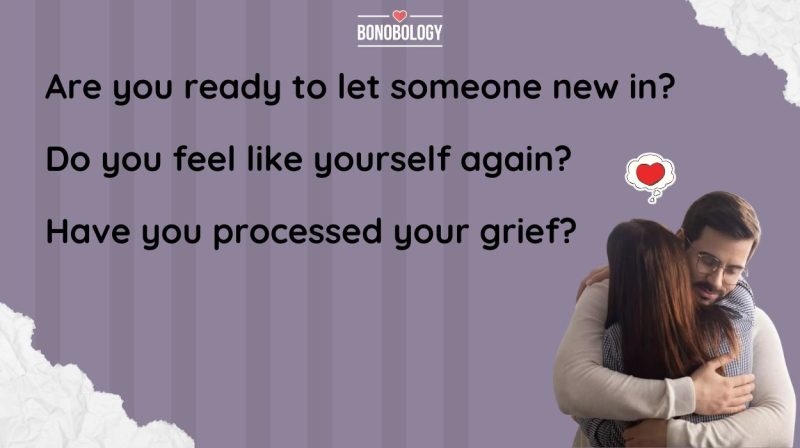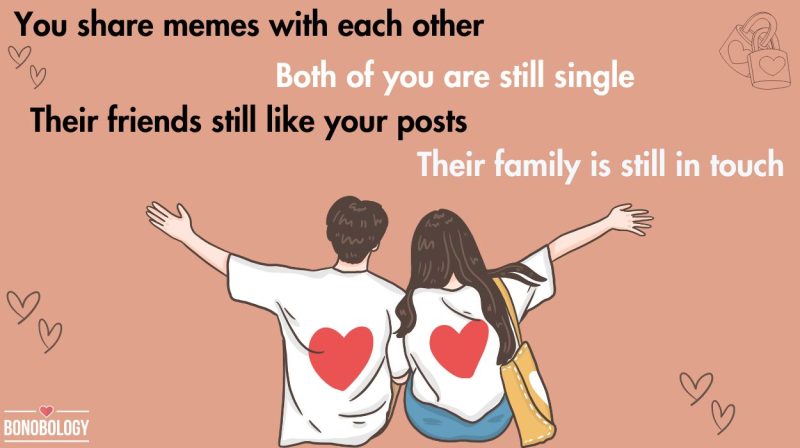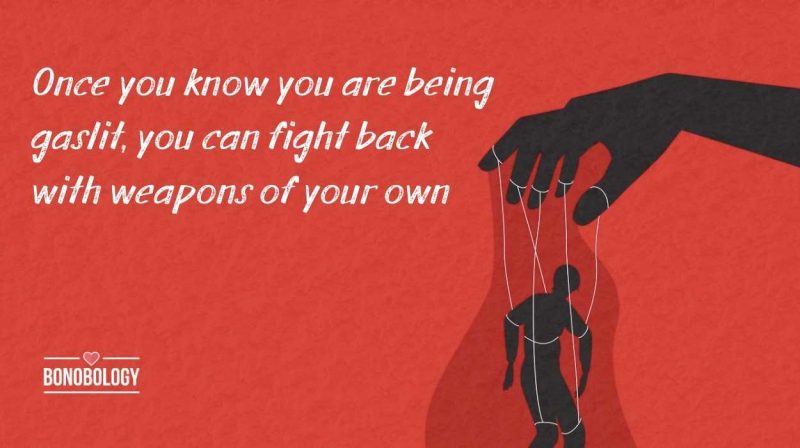A friend and I were talking the other day. She’s constantly afraid her husband’s going to leave her, even though there don’t seem to be any signs that he’s even thinking about it. But her abandonment issues in relationships are so strong that she keeps visualizing scenarios where he’ll leave her.
He could meet someone else, maybe he’s bored, maybe he’s tired of me, I’m probably not interesting enough – these are just some of the ways how abandonment issues manifest in relationships. If you’re wondering what are some abandonment issues in adults that can affect romantic relationships, we’ve got some answers for you.
We asked counseling psychologist Gopa Khan (Masters in Counseling Psychology, M.Ed), who specializes in marriage & family counseling, and psychotherapist Sampreeti Das (Masters in Clinical Psychology and PhD researcher), who specializes in Rational Emotive Behavior Therapy and Holistic and Transformational Psychotherapy, for some insights on abandonment issues in marriage and relationships, and how to cope with them without losing your mind, or your love.
What Are Abandonment Issues In Relationships
Table of Contents
“Abandonment issues can be explained as psychological reactions due to unwanted separation from significant figures. They usually can be traced back to traumatic losses in childhood, but may also happen in adulthood. With abandonment issues in adults and kids, there develops a constant fear of losing perceived important figures in life. When one grows up with this constant fear, it manifests itself in various mental health symptoms,” Sampreeti says.
“Feeling a sense of lack in oneself, feeling responsible for everything, feelings of guilt, inability to trust, need for control, need to be controlled, being easy to manipulate, a frantic need to please others, fear of separation and insecurity, constant need for reassurance of commitment or love can be some of the ways in which abandonment issues in romantic relationships appear,” she adds.
“Abandonment issues can also occur during breakdown of relationships, divorce, death of a loved one, in children of narcissistic parents or families with addiction issues,” Gopa adds.
Now that we have a little insight into how abandonment issues manifest in relationships, let’s delve deeper into some of these issues and take a look at the signs that you may not yet have overcome abandonment issues from childhood.
1. Forming quick attachments
“I tend to jump head and heart first towards anyone who gives me a little attention or affection,” admits Julianne. “It took years of therapy and introspection before I realized that my abandonment issues from childhood, my parents never being around etc., had resulted in me being terrified that no one would love me or stay with me.”
Being open to love is great, but if you’re ready to gift-wrap your heart, your time and emotions and stick a bow on top for anyone who’s nice to you, there are chances your eagerness for love stems from abandonment issues in relationships.
A healthy relationship comes with healthy relationship boundaries. If you’re unable to form or maintain these boundaries, maybe you’re just terrified that you won’t find love at all, and so you jump at the first chance you get.
2. Being constantly clingy
Are you forever texting or calling your partner to ask where they are, what time they’re coming home and so on? Are you petrified of going anywhere alone, embarking on solo travel or generally being without your significant other even for a short time? Sounds like you’re having some abandonment issues in marriage or in your relationship.
“Fear of loneliness, phobia, anxiety and being clingy in relationships are signs of abandonment issues, in fact they’re often the first signs that might show up,” Gopa says.
There’s a difference between sending a cute text to your partner when you miss them, and having a mini panic attack if they come home 10 minutes later than they said. If they haven’t returned a call right away, and you immediately start visualizing them having an affair with a coworker, it’s time to acknowledge your abandonment issues in relationships and seek help.
3. Being responsible for everything, or avoiding responsibility completely
“One aspect of having abandonment issues in romantic relationships is that you’ll forever be blame-shifting other people and never taking personal responsibility when things go wrong,” says Gopa. The reasoning behind this, she explains, is that people with abandonment issues in relationships are terrified of admitting they made a mistake or did something wrong, in case their partner leaves them.
The flip side of this, Sampreeti says, is that they’ll try to be responsible for everything. “People with abandonment issues in marriage will end up taking on far more responsibility for errands or family matters than they can handle, in hopes that this will make them more lovable, and less likely to be abandoned,” she says.
Related Reading: How To Deal With Being Ignored By Someone You Love
So, if you love a woman with abandonment issues, or a man, there’s going to be some tussle over responsibility, whether they’re taking on too much, or too little.
4. Major trust issues
This is rather an obvious one, or so it would seem. Relationship insecurity isn’t unusual and could come up even if abandonment issues in relationships isn’t the reason. It’s just that insecurity tends to get a real boost if you haven’t yet overcome abandonment issues from childhood.
“Trust issues are a major sign of abandonment issues,” says Gopa. “Anyone who’s faced abandonment, either physical or emotional, in childhood or adolescence, will find it hard to trust a romantic partner or spouse. When you grow up distrusting people who are supposed to take care of you, it’s going to make itself felt in all your relationships.”

She adds, “Trust issues will show themselves as insecurity, being jealous in relationships or of others. You could constantly suspect your partner of infidelity, or keep stalking them on social media. The inability to accept the word ‘no’ in a relationship is also a clear-cut example of insecurity.”
5. Constant fear of being left
“I’m a child of divorce and I constantly saw my parents bickering and threatening to leave one another even before the split became official. Obviously, when I was old enough to have relationships of my own, all I knew of love was that people left,” says Karen. Her fear of being left crippled her inability to form healthy functional relationships, since her every response, every decision stemmed from that fear.
Abandonment issues in adults can make for toxic relationships, because rather than coming from a place of love and trust, you’re coming from a conviction that no matter what you do, you’re going to be the one who gets left.
6. Control issues
“A constant need to be in control or be controlled shows a lack of confidence in one’s self, which can stem from abandonment issues in relationships,” says Gopa. She gives the example of a client who continued to be in an abusive relationship even after her partner deliberately burnt her hand, because she was so afraid of being alone.
Related Reading: 5 Signs Of Emotional Abuse You Should Watch Out For, Warns Therapist
“Being alone would mean having to be in control of your own life and feelings, and if you’re scared of abandonment, you’ll do anything to avoid that,” she adds. On the other hand, it’s possible to have abandonment issues and also be a control freak, because if you believe if you hold all the reins in a romantic relationship, your partner won’t leave you.
7. Sabotaging relationships
“I don’t want to be left, so I leave first, or then I behave so badly that I practically force them away,” says Mark. “I really and truly think it’s less painful if I do the leaving because at least then, I’m not left holding the pieces of a broken relationship.”
Fear of abandonment issues in relationships means that you’ve already made up your mind that every relationship will end in you being the one who’s left behind. And one way you might handle it is to be your absolute worst self in your relationships so that you’re not forming any true emotional connection or intimacy. That way, you think, it’ll be easier when they leave, since your heart wasn’t involved in the first place. Or, as Mark says, you’ll simply leave first. Because, in your mind, there’s no other way for a relationship to end up.
8. Overly eager to please
Being a ‘yes-person’ is always a relationship red flag. And when you have abandonment issues in marriage or in a relationship, the assumption in your mind will be that if you please a partner enough, agree with them enough, they won’t leave you.
Again, the question of boundaries arises here. As Gopa says, if you can’t say ‘no’ with a clear, confident mind, your abandonment issues are peeking through. Think about it. Does your partner make all the major decisions in the relationship? Where you eat, where you go on vacation, how you divide the household chores etc. And do you simply go along with everything, because you hate confrontation, and you’re terrified it’ll end in them leaving? Yes, that’s your abandonment issues talking.
9. Choosing unavailable partners
Sherry has a pattern when it comes to relationships. She’s dated or fallen for people who are married, who live in other countries, or who are simply commitment-phobes. “Since high school, I don’t think I’ve dated or liked anyone who would actually be available to me,” she admits.
If you’ve got abandonment issues in relationships, it might feel instinctively safer to pursue or fall for people who are difficult to actually engage with or have a functional relationship with. Because what’s the point of getting into something with the hope that it lasts, since love ultimately ends in leaving anyway. The abandonment issues that are set in your brain won’t allow you to be with someone who’s actually going to show up and commit to you, because you don’t believe such things exist.
10. Low self-esteem, poor boundaries
One of the most seemingly subtle but ever present abandonment issues in relationships is a lack of boundaries that stems from low self-esteem. We’ve talked about boundaries a lot here, because unhealthy relationships are often rooted in low self-esteem.
If you’ve grown up with abandonment issues, chances are your self-esteem and confidence didn’t have much of a chance to develop. And once you get into a relationship, that lack of self-love gets in the way of forming boundaries. You might put up emotional barriers to keep from getting emotionally intimate, but boundaries won’t come so easily to you.
How To Deal With Abandonment Issues
We’ve gone deep into abandonment issues in relationships and how they manifest themselves. But how do you deal with them, heal from them and move on? Whether you’re battling these issues yourself, or understanding a woman with abandonment issues, we rounded up some tips and concrete ways to work your way through these issues and give your love life a boost.
Related Reading: Fear Of Relationships After Divorce: Face These 10 Fears First
1. Seek therapy
“The best way to deal with abandonment issues is seeking therapy, as unresolved issues can hold people back from having healthy relationships,” says Gopa. Whether you’ve acknowledged that you’re the one with abandonment issues or wondering what are some abandonment issues you could help your partner with, professional help is a great way to air out your issues and learn how to support your partner. You could try reaching out to Bonobology’s panel of counselors for help.
“Abandonment issues are much more complex than they seem to be,” Sampreeti adds. If you have the insight and awareness to realize that your issues are based on abandonment, you may be able to overcome them with self-care etc. But that’s rarely enough.
“Usually, professional therapy is needed too. There’s no one way to deal with abandonment issues and it depends on the person and their support system. There are complex individual and socio-cultural factors entwined here. Such issues need sensitive and tailor-made techniques in cooperation with a mental health expert,” she advises.
2. Initiate self-care
“Focus on diet, sleep, exercise and build support systems,” advises Gopa. She emphasizes that abandonment issues could make people anxious and take the focus off self-care.
Do things that make you feel good and talk and spend time with people who lift you up. Remember, self-love is all about reminding yourself that you’re more than someone who’s bound to get left, you’re a whole, complex person who has as much chance as anyone else of finding a fabulous love affair. And even if you don’t, you’re fabulous anyway.
3. Focus on positive thinking
Abandonment issues in relationships will almost always force you to focus on the negative. You’ll forever be thinking of things that are wrong with you, and things that could go wrong with a current or potential relationship.
“Adopt new ways of problem-solving and try to reinvent yourself. This way, you’ll build self-esteem and trust in yourself,” Gopa says.
Related Reading: 10 Best Positive Things To Do After A Breakup
Positive thinking doesn’t mean brushing your issues under the carpet and pretending everything is fine. Rather than focusing on what could go wrong with a relationship, try and think about what could go right. Make a list of the great things you would bring to a partnership; again, a reminder that your issues are a part of you, but that’s not all you are.
4. Tell yourself you deserve better
“Focusing on developing healthy relationships and boundaries is important when dealing with abandonment in relationships,” says Gopa. “Also, too many people with abandonment issues are so afraid of being alone that they remain in abusive relationships. It’s important to understand the difference between an abusive and a healthy relationship.”
If you love a man or a woman with abandonment issues, it’s also important to lift them up constantly and tell them they’re worth it and that they deserve good, healthy love in their lives. It’s not going to be easy with them, but it’s part of being a good partner.
5. Be emotionally independent
“I encourage my clients to be emotionally independent and to reduce their dependence on other people, no matter what they’re dealing with,” Gopa says. “Ultimately, our happiness needs to come from within, no matter how in love we are with our partner. That’s perhaps the most important part when dealing with abandonment issues in relationships – to recognize that knowing and loving yourself needs to come first.”
Emotional independence doesn’t mean you never open up to anyone else. It’s just that you get to know yourself first, love yourself with all your flaws and complexities, and then once you have enough love within you, you can share it with people of your choice.
Related Reading: 7 Signs Of Loneliness In A Relationship And How To Cope
Understanding a man or a woman with abandonment issues is a journey unto itself, and will need you to get over any fear of abandonment issues in relationships. People who are scared of being abandoned find it tough to adjust to relationships even when they find love, so as a partner, you’ll need to step up your empathy game as well.
While abandonment issues in relationships can stem from childhood trauma, its effects can last well into adulthood. “I have a 50-year-old client who continues to have conflicting relationships with her elderly parents and is still battling trauma due to the way she was raised,” Gopa says.
“The uneasy equation with her parents led to a lifelong battle of feeling abandoned, neglected and an inability to be in an intimate relationship. It also led to difficulty working or having a healthy professional life due to her trust issues. Such cases do take a long time to heal since forming primary relationships and conflict resolution is a key step to self-acceptance,” she adds.
If you’re dealing with abandonment issues, or trying to help a partner or a friend with these issues, remember to be kind, to listen and to remember you’re not alone.
Romantic Life Off-Track? How You Were Raised Affects Your Relationships
How To Stop Worrying About Your Relationships – 8 Expert Tips
Broken Heart Syndrome: When Your Heart Breaks, Quite Literally
Your contribution does not constitute a charitable donation. It will allow Bonobology to continue bringing you new and up-to-date information in our pursuit of helping anyone in the world to learn how to do anything.






















